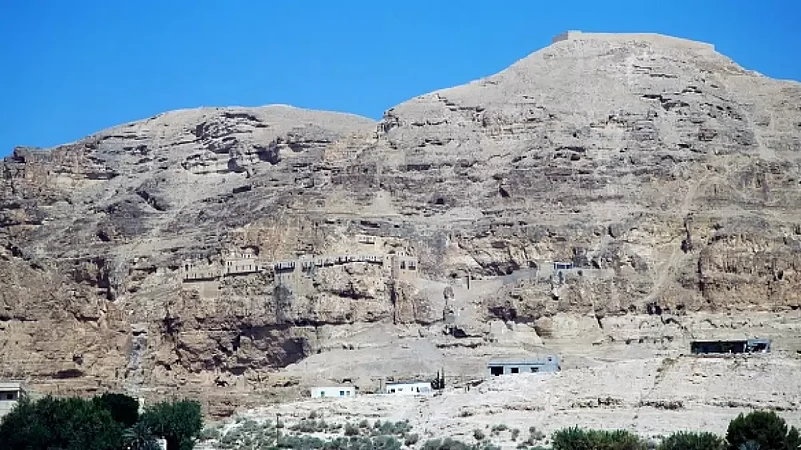The wadi started next to Jerusalem, in the village of Anata, which bore the name of the Canaanites’ Goddess Anatut, their goddess of war, love and the hunt. The narrative in the Torah gave a brief indication that King Solomon used to hunt and walk in these hills. But what did Solomon hunt in these hills, the king gifted to speak to the birds and animals?
In their time, the Byzantines had called it Anato. The Syriac-Arameans called it Anatiya.
He loved to trace the names of the villages and wadis, to revolve and etch their names through the ages that had passed over this land. It was a passion that started in his search for the name of their village. Zakariyya. It began up on the hill, four thousand years ago, when it was called Azkaah or Aziika, a name that came from the planting and tilling of the earth. It then moved, he thought, from the peak of the great hill bearing its name, down into the plain and the wadis around it, which were all named after trees. Wadi al-Sant, Wadi Butm where David took on Goliath, Dahr al-Kandul, and Wadi Bulis with its small shrine of the prophet who had that name. The wadis with their names and alterations were like living, speaking beings, he thought, as he continued to descend in Wadi Qelt down to its vanishing point in the plain of Jericho, where the ruins of Herod’s castle spread like wings on the wadi’s flanks, just south of the faded remnants of the royal garden.
Water cascaded from the stones to form a strange brook running into the Dead Sea, transforming, he thought, as if coloured by the cries of the Persian troops, inmixed with blood dripping from the sixteen boys more than thirty years ago.
As he continued the journey towards west of Jericho, he passed beyond the wadi and the monastery of Saint George, leaving the bodies of the young men stretching in the bends of the wadi. The massacre of the monks, the strange birds, wonders and plants of the afterlife, all continued their life behind him, as the air became heavy, pressing his chest, shoulders and eyes as he descended the river course below the sea level. He felt as if he joined some eternal waterfall, a companion that had waited for him forever, encircling him now—armies, monks, raiders, plants, birds, water, scents, voices cherished like amulets, invocations, instincts; sixteen youths, women, horses, horses, foxes, hyenas, prophets holding miracles, miracles in search of prophets who had not yet found guidance; believers, the lost, the poets, philosophers, the sculptors and weavers, the mills and cane presses and fishermen; stags and tax collectors, priestesses, temples, a pale moon; the fences and prayers, betrayal and trumpets; and a lone adulteress left in the story like a puzzle.
This was his company as the water poured, vaunting its grandeur, constantly renewing itself, like some tremendous line of darkness and light, as he dropped below the sea level in his passage towards Jericho.
He felt something like the fulfilment of a promise deferred so long it was forgotten. His stubbornness and his submission drove him on. He knew he had to climb Mount Qarantal, whose southern face was marked by caves and caverns, as if the massacre itself had somehow slipped and fallen from the story and set out in pursuit of the mountain itself. If he turned his eyes upward and blocked the glare of the sun, he could make out the monastery’s chambers suspended in the stone walls above him, just as they had been more than thirty years before, as if drawn on the mountain by a child’s hand.
He climbed, following the temple path, towards a narrow entrance that led onto a trodden dirt pass climbing the cliff-face towards the monastery near the summit.
While the sun climbed in the east, another burning day rose to meet first the naked white hills and salt surface of the lake, then the knoll of palms and the banana fields at its base, the earthen houses and the trench stretching between the two mountain chains. Thick blue mist above obscured the distant scene of Jerusalem.
Jericho, like an explosion of sudden green, gathered in sight of the monastery. He thought of its ancient fears, this first city to fortify itself.
(Excerpted from An Old Carriage with Curtains, translated by Samuel Wilder, with permission from Seagull Books)


























